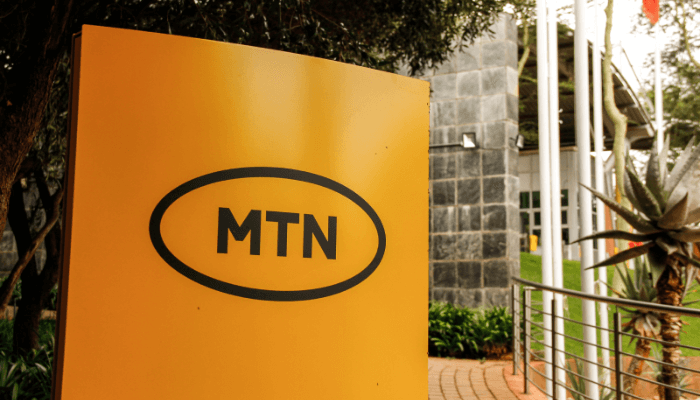Development finance institutions are now playing are more active and direct role in Africa’s VC funding ecosystem.
In November last year, the International Finance Corporation launched a $225 million venture capital platform to back early-stage startups in Africa, the Middle East, Central Asia and Pakistan.
The platform will be backed by an additional $50 million from the Blended Finance Facility of the International Development Association’s Private Sector Window, which helps de-risk investments in low-income countries. Africa is earmarked to receive approximately $180 million from this VC funding initiative over a period of three years.
The development finance institution (DFI), which is a member of the World Bank, stated at the time that it would make equity and “equity-like” investments in tech startups to “grow them into scalable ventures that can attract mainstream equity and debt financing.”
The IFC is the latest DFI to dabble in venture investing in Africa. The British International Investment (BII), formerly known as the Commonwealth Development Corporation, also announced that it would deploy $500 million into startups by the end of 2026, and half of that amount has been earmarked for African tech companies. The US’ International Development Finance Corporation (DFC), in conjunction with other DFIs, also committed to investing $80 billion in African businesses over 5 years as well as the African Development Bank (AfDB), which committed to investing $618 million in more than 200 Nigerian technology and creative sector startups.
As VC funds and institutional investors slow down their check writing due to the global economic downturn, the active involvement of DFIs in African VC could not have come at a better time.
“Any LP is important, but because the DFIs have a long-term outlook, they have seen downturns before. So it is more about how to work together to manage through the downturn and sharing lessons learnt from previous downturns,” said Keet van Zyl, co-founder and partner at Knife Capital, a Cape Town-based venture capital firm.
Knife Capital received a $10 million investment from the IFC last year for its Knife III fund. IFC was an anchor LP in the investment and together with the Mineworkers Investment Company (MIC) and the SA SME Fund, were the first to commit to Knife Fund III which seeks to make late stage investment in startups.
According to van Zyl, beyond just writing the check, the IFC’s investment also helped to shape the investment agreements in a way that made it easier for other funders to come in on the same standard terms.
“The IFC also regularly engaged with Knife to share deal flow and co-investment opportunities across the continent. The backing also reassured entrepreneurs that Knife has credible backers that could potentially follow on in future rounds due to their funding capabilities. It also gave other LPs a level of comfort to engage because of the rigorous due diligence done by an established DFI like the IFC,” added van Zyl.
A DFI’s perspective
According to the IFC, its investments in Africa’s venture capital sector are countercyclical, helping to cushion the blow struck by rising interest rates and higher inflation which is driving down valuations in the tech sector and making it much harder for entrepreneurs to raise capital. The IFC also adds that it is often one of the only international investors on African startups’ cap tables when they first invest, helping to shepherd other institutional and strategic investors into future funding rounds.
“IFC takes an ecosystem approach to supporting VC activity in Africa, an important role we see for DFIs more broadly. By supporting the VC ecosystem growth, we can encourage other investors to finance Africa’s growing startups. We do this by making direct investments and supporting other funds,” said William Sonneborn, global director of disruptive technologies & funds at IFC.
In keeping with its ecosystem approach to boosting VC activity, IFC launched the Startup Catalyst in 2016. The Startup Catalyst is a platform designed to invest in incubators, accelerators, and seed funds supporting innovative early-stage startups in emerging markets through mentoring, networking, and funding. To date, the program has supported 19 accelerators and seed funds (including 5 in Africa) that have invested in over 1,180 startups in 24 emerging markets.
The IFC has also recently doubled the program with a new pool of $60 million to expand support for incubators, accelerators, and seed funds in the most nascent venture ecosystems, including startups focusing on strategically important areas such as climate innovations, gender and inclusion.
IFC claims to have a long-term commitment to Africa, and to that end has invested and mobilised over $1.3 billion in capital for the continent over the last 8 years in support of the disruptive technology and venture capital ecosystems.
“In Africa, the digital economy has the potential to contribute $712 billion to the continent’s GDP by 2050. This offers a significant opportunity to support innovation, job creation and new ways to deliver critical services,” added Sonneborn.
For the BII, Sonal Premjee, investment manager in technology and telecoms, the rationale behind backing African startups is the knowledge that tech-enabled companies, which are inherently highly scalable, have the ability to drive inclusive economic growth resulting in transformational impact.
“BII has been investing in emerging markets, including Africa, for 75 years, and continues to carry out our mandate by supporting private sector growth and innovation in Africa, South Asia and the Caribbean. Technology is a key route to achieving this objective and will continue to be a focus for BII. As such, we will maintain our pace of investment in African VC,” she told TechCabal.
Going into the future
With the VC downturn showing no signs of stopping anytime soon, the role of DFIs in supporting Africa’s VC ecosystem and consequently, its tech startup ecosystem, remain vital. According to van Zyl, going forward, the DFIs will target specific regional ecosystem expert fund managers in a co-investment and follow-on investment model, with VCs assuming the commercial lead role.
“For instance, Knife is finalising an investment in East Africa where 3 DFIs are co-investing and following Knife as lead investor. So the partnership with DFIs are very beneficial if the rules of engagement are contracted upfront as one needs to find the balance between impact and growth with a strategy to exit for outsized returns. But luckily these things go hand-in-hand as investing in high-growth disruptive African entrepreneurs by definition advances innovation, job creation and economic growth,” he added.
The IFC’s plans go beyond just supporting African VC for the long term. The DFI also plans to leverage its partnerships with other development entities to offer assistance just beyond the capital injection.
“In addition to the investments, IFC’s advisory and upstream teams provide direct support to disruptive technology companies in areas including market access, digital financial services and regulatory support. IFC also engages with governments, regulators and other ecosystem stakeholders to support companies in the VC ecosystem to have an enabling environment to grow,” concluded Sonneborn.
For the BII, the expectation is that the available venture capital will go a long way in backing businesses who are solving pertinent socio-economic pain points on the continent.
“The underlying macroeconomy and consumption trends in Africa continue to trend positively in a long-term view. We expect this vintage to also see the creation of more sustainable businesses as entrepreneurs are building in an environment with lower funding availability. That said, African businesses with strong fundamentals/ KPIs have continued to raise capital from global institutional investors despite the downturn in funding and we expect this to continue in the course of the downturn,” added Premjee.
Before dabbling in startup venture investing, DFIs had been present in Africa for years. For example,Mo Ibrahim’s Celtel, which pioneered telecommunication on the continent, got significant DFI support and completely revolutionised telecommunications access on the continent .
Should the success of that kind of support be replicated through their venture investing, DFIs like the IFC and BII can make a significant contribution to the growth of Africa’s technology ecosystem which would in turn support innovation, job creation and new ways to deliver critical services.
What do you think about our stories? Tell us how you feel by taking this quick 3-minute survey.





















